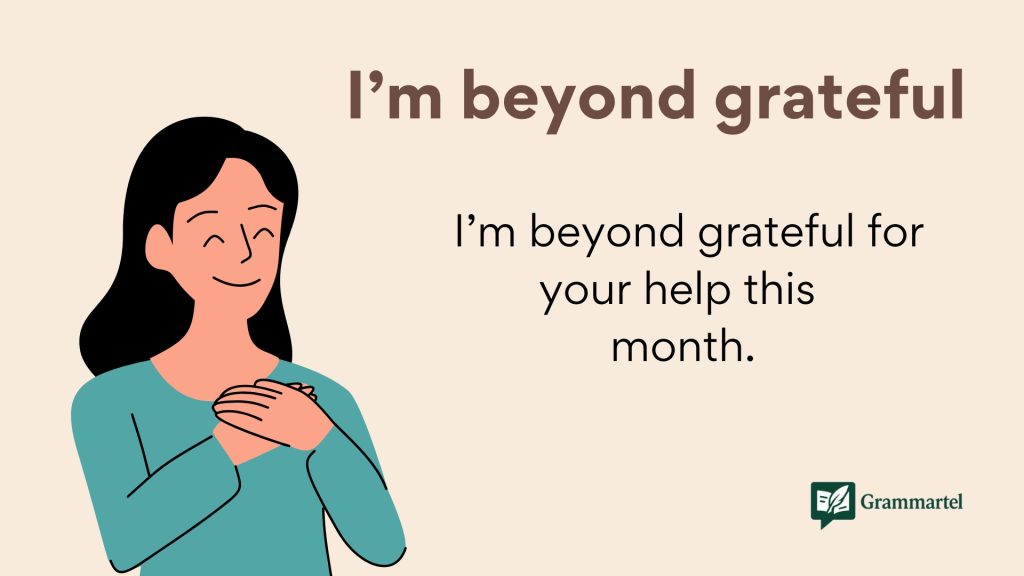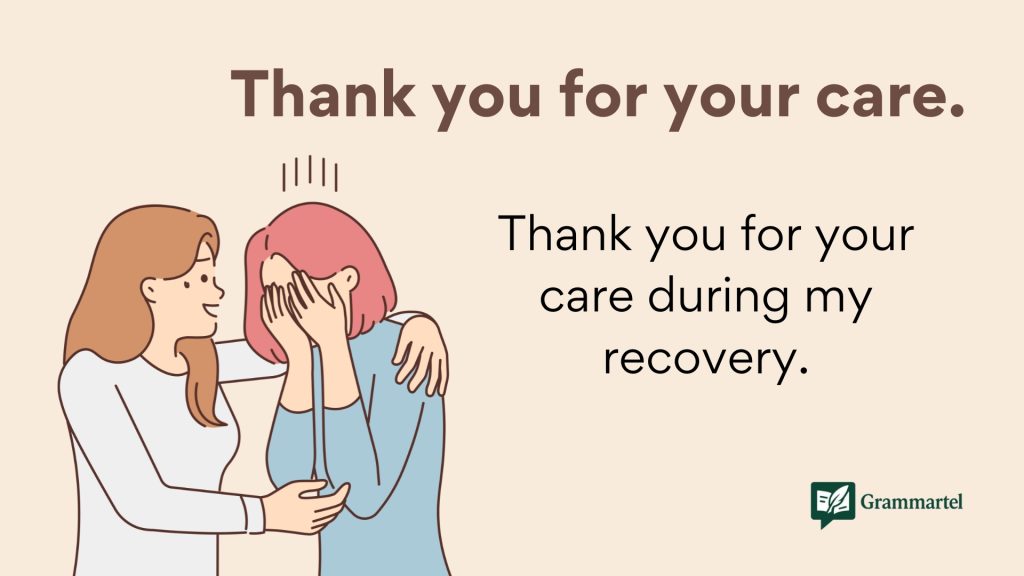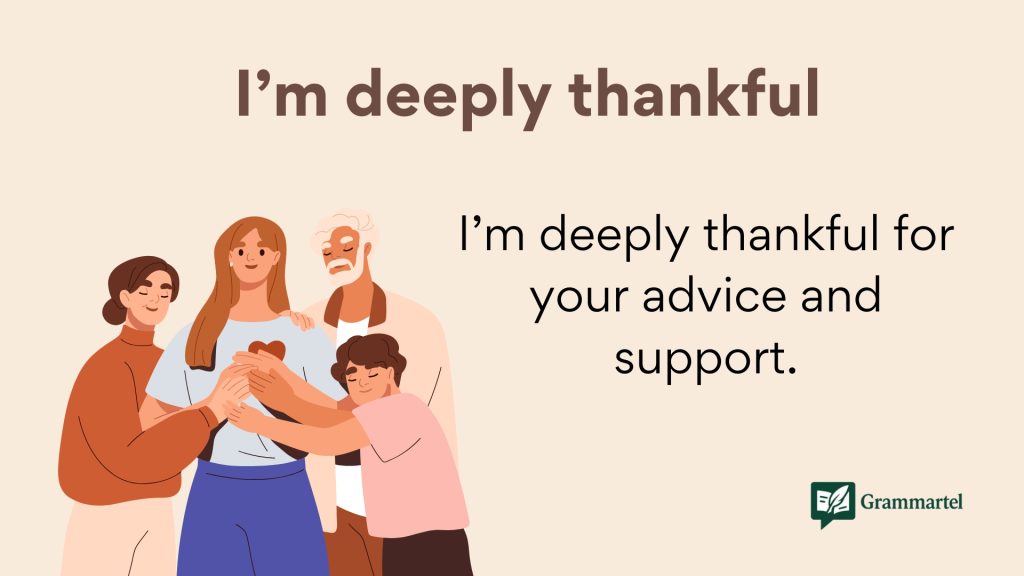Sometimes, “thank you for your thoughtfulness” doesn’t quite capture how grateful we feel. Whether it’s a kind gesture, a heartfelt message, or a small act that meant the world—there are many ways to show your appreciation without repeating the same phrase. People notice when you take a moment to say thanks in a more personal, genuine way. So why not change it up a little? In this list, you’ll find 40 different ways to express gratitude that still feel warm, sincere, and easy to say in real-life conversations.
What Does “Thank You for Your Thoughtfulness” Mean?
“Thank you for your thoughtfulness” is a kind way to show you noticed someone’s kind act or care. It means you’re grateful they took the time to think about you or your needs. Maybe they sent a card, gave you a gift, or just said something nice. Either way, you’re saying, “I see what you did, and I appreciate it.”
When to Use “Thank You for Your Thoughtfulness”
Use this phrase when someone goes out of their way to be kind. It works in notes, emails, or in person. You might say it after a friend helps you, a coworker covers your shift, or someone brings you soup when you’re sick. It’s simple, polite, and heartfelt.
40 Other Ways to Say “Thank You for Your Thoughtfulness”
1. I really appreciate your kindness.

Meaning: You’re grateful for someone’s considerate behavior.
Explanation: A warm, heartfelt way to acknowledge a generous or kind action.
Example: I really appreciate your kindness in checking on me during that hectic week.
Best Use: Personal messages, casual emails
Worst Use: Cold corporate responses
Tone: Warm, sincere
2. That was very considerate of you.
Meaning: You noticed their attention to detail and care.
Explanation: Highlights the person’s intention behind the gesture.
Example: That was very considerate of you to bring snacks for the whole team.
Best Use: Colleague appreciation
Worst Use: Very emotional or sentimental scenarios
Tone: Polite, professional
3. Thanks for going out of your way.
Meaning: Acknowledges effort and inconvenience taken for your benefit.
Explanation: Recognizes that the person did something extra.
Example: Thanks for going out of your way to help me move.
Best Use: Informal or friendly chats
Worst Use: Very formal communication
Tone: Casual, appreciative
Also Read : 40 Polite Ways to Say “Just to Confirm” (With Examples).
4. Much obliged.
Meaning: You feel thankful and indebted.
Explanation: Slightly old-fashioned, but shows formal gratitude.
Example: Much obliged for your help during the meeting prep.
Best Use: Formal emails or polite conversation
Worst Use: Modern casual talk
Tone: Formal, traditional
5. It meant a lot to me.
Meaning: The action had emotional significance.
Explanation: Highlights personal impact.
Example: Your message on my birthday meant a lot to me.
Best Use: Emotional or heartfelt moments
Worst Use: Strictly professional environments
Tone: Personal, tender
6. You really didn’t have to, but I’m so grateful.
Meaning: The gesture was unexpected and appreciated.
Explanation: Combines humility with thanks.
Example: You really didn’t have to send flowers, but I’m so grateful.
Best Use: Close friends or personal situations
Worst Use: Business settings
Tone: Warm, informal
7. I’m touched by your gesture.
Meaning: You feel emotionally moved.
Explanation: Expresses deep appreciation for thoughtful behavior.
Example: I’m touched by your gesture of donating in my name.
Best Use: Personal relationships
Worst Use: Light-hearted or joking contexts
Tone: Emotional, heartfel
8. Thank you for thinking of me.
Meaning: You appreciate being remembered.
Explanation: A simple way to show gratitude for attention or care.
Example: Thank you for thinking of me during your vacation.
Best Use: All-purpose use
Worst Use: Overused in formal writing
Tone: Light, appreciative
9. That was incredibly thoughtful.
Meaning: The action was deeply considerate.
Explanation: Adds emphasis to the level of thoughtfulness.
Example: That was incredibly thoughtful of you to remember my anniversary.
Best Use: When someone makes a personal effort
Worst Use: Routine or transactional scenarios
Tone: Warm, enthusiastic
10. I genuinely appreciate it.
Meaning: Honest, heartfelt gratitude.
Explanation: Shows authenticity in your thanks.
Example: I genuinely appreciate your help during crunch time.
Best Use: Balanced between personal and professional
Worst Use: Very casual conversations
Tone: Sincere, direct
11. You’ve really made my day.
Meaning: The gesture had a big positive impact.
Explanation: A cheerful way to show gratitude.
Example: You’ve really made my day with that surprise gift.
Best Use: Lighthearted or personal settings
Worst Use: Serious or formal occasions
Tone: Cheerful, casual
12. Thanks for being so thoughtful.
Meaning: Appreciates their intentional care.
Explanation: Slightly informal but widely applicable.
Example: Thanks for being so thoughtful with your gift.
Best Use: Everyday appreciation
Worst Use: Highly formal emails
Tone: Friendly, warm
13. I’m beyond grateful.

Meaning: You feel overwhelmed (in a good way) with gratitude.
Explanation: Adds emotional weight.
Example: I’m beyond grateful for your help this month.
Best Use: When someone went above and beyond
Worst Use: Trivial situations
Tone: Emotional, expressive
14. Thank you from the bottom of my heart.
Meaning: Deep, sincere thanks.
Explanation: A classic phrase with emotional depth.
Example: Thank you from the bottom of my heart for your support.
Best Use: Personal, sentimental messages
Worst Use: Business communication
Tone: Sentimental, heartfelt
15. Thanks a million.
Meaning: Informal, exaggerated thank you.
Explanation: Adds playful enthusiasm.
Example: Thanks a million for the referral!
Best Use: Friendly or informal exchanges
Worst Use: Formal communication
Tone: Light, enthusiastic
16. You’re incredibly kind.
Meaning: Recognizing someone’s character.
Explanation: Slightly indirect way of saying thanks.
Example: You’re incredibly kind to have stayed late just for me.
Best Use: Complimenting someone’s personality along with thanking them
Worst Use: Where direct thanks is required
Tone: Warm, admiring
17. I appreciate it more than you know.
Meaning: Your thanks go deeper than words can say.
Explanation: Expresses unspoken depth of gratitude.
Example: I appreciate it more than you know—truly.
Best Use: Emotional or deep connections
Worst Use: Superficial conversations
Tone: Reflective, sincere
18. Thanks for always being so thoughtful.
Meaning: Recognizing a pattern of kindness.
Explanation: Thanks not just for one act but consistent behavior.
Example: Thanks for always being so thoughtful about birthdays.
Best Use: Long-standing relationships
Worst Use: One-off gestures
Tone: Appreciative, familiar
19. Thank you for your care and attention.
Meaning: Appreciating the time and detail given.
Explanation: A professional-sounding acknowledgment.
Example: Thank you for your care and attention during the onboarding process.
Best Use: Work emails or client-facing roles
Worst Use: Casual chats
Tone: Professional, respectful
20. That was above and beyond.
Meaning: The action exceeded expectations.
Explanation: Praises exceptional effort.
Example: Your help organizing the event was above and beyond.
Best Use: High praise, work or personal
Worst Use: Routine tasks
Tone: Complimentary, informal
21. Thanks for noticing.
Meaning: You’re glad they paid attention.
Explanation: Can be used to highlight thoughtful observation.
Example: Thanks for noticing I’ve been off lately—it helped.
Best Use: When someone picks up on subtle things.
Worst Use: When they didn’t really notice anything important.
Tone: Appreciative, conversational
22. I’m beyond thankful.
Meaning: You’re expressing extreme gratitude.
Explanation: Exaggerates in a positive, emotional way.
Example: I’m beyond thankful for your help this month.
Best Use: For big favors or heartfelt support.
Worst Use: When it feels melodramatic.
Tone: Emotional, expressive
23. It was such a generous gesture.
Meaning: You’re praising the selflessness of their action.
Explanation: Perfect when the thoughtfulness includes sacrifice or giving.
Example: It was such a generous gesture to cover my shift.
Best Use: When they gave time, money, or energy.
Worst Use: For minor or polite favors.
Tone: Grateful, admiring
24. You really made my day.
Meaning: They turned your mood around.
Explanation: Great for cheerful moments or surprises.
Example: You really made my day with that surprise latte.
Best Use: When someone brings unexpected joy.
Worst Use: For very serious or formal occasions.
Tone: Cheerful, light-hearted
25. Thank you for your care.

Meaning: You’re acknowledging their emotional concern.
Explanation: Simple and gentle way to show appreciation.
Example: Thank you for your care during my recovery.
Best Use: For emotional support or caregiving.
Worst Use: Too vague for professional settings.
Tone: Soft, kind
26. That was really thoughtful of you.
Meaning: A casual and direct way to show gratitude.
Explanation: Similar to the original, just reworded slightly.
Example: That was really thoughtful of you to bring extras.
Best Use: Everyday situations
Worst Use: When more formal tone is needed.
Tone: Warm, casual
27. I’m thankful for people like you.
Meaning: Their behavior reflects positively on who they are.
Explanation: General gratitude wrapped around a personal compliment.
Example: I’m thankful for people like you—kind and dependable.
Best Use: When praising character as well as action.
Worst Use: When directed to someone you barely know.
Tone: Heartfelt, appreciative
28. You really didn’t have to, but I’m so glad you did.
Meaning: You’re surprised and thankful.
Explanation: Expresses both humility and appreciation.
Example: You really didn’t have to, but I’m so glad you did.
Best Use: When someone surprises you with a nice favor.
Worst Use: For required or expected tasks.
Tone: Grateful, playful
29. So grateful for your thoughtfulness.
Meaning: Condensed but strong message of thanks.
Explanation: Simple and straightforward, with a clear emotional tone.
Example: So grateful for your thoughtfulness during the holidays.
Best Use: For cards, texts, or messages.
Worst Use: May feel too brief in formal emails.
Tone: Sincere, easygoing
30. You always know just what to do.
Meaning: You’re admiring their intuition and kindness.
Explanation: Suggests deep familiarity or connection.
Example: You always know just what to do—thank you.
Best Use: With friends or close colleagues.
Worst Use: With acquaintances or strangers.
Tone: Familiar, warm
31. I appreciate your thoughtfulness more than words can say.
Meaning: Their gesture meant a lot—beyond what you can express.
Explanation: It’s a poetic way to express deep gratitude.
Example: I appreciate your thoughtfulness more than words can say.
Best Use: Emotional or serious situations.
Worst Use: In quick, casual chats.
Tone: Emotional, poetic
32. Thanks for always being so thoughtful.
Meaning: Recognizes a pattern of kind behavior.
Explanation: Not just one gesture—you’re appreciating consistency.
Example: Thanks for always being so thoughtful about birthdays.
Best Use: Long-term relationships—personal or work.
Worst Use: When it’s a one-time thing.
Tone: Warm, reflective
33. You really went above and beyond.
Meaning: Acknowledges extra effort.
Explanation: Strong phrase for big favors or unexpected help.
Example: You really went above and beyond with that care package.
Best Use: When someone exceeds expectations.
Worst Use: For small tasks.
Tone: Impressed, thankful
34. That was really meaningful to me.
Meaning: The action had emotional significance.
Explanation: Doesn’t just say thanks—explains impact.
Example: That was really meaningful to me—thank you.
Best Use: For emotionally supportive gestures.
Worst Use: For superficial acts.
Tone: Reflective, personal
Worth a look : 40 Other Ways to Say “I Have Not Heard From You” (With Examples).
35. Thanks for being so generous with your time.
Meaning: Acknowledges time as a gift.
Explanation: Ideal for busy people doing you a favor.
Example: Thanks for being so generous with your time this week.
Best Use: Work, mentorship, or favors.
Worst Use: When no real time was sacrificed.
Tone: Respectful, appreciative
36. You’re so thoughtful—it really stood out.
Meaning: Highlights the uniqueness of their act.
Explanation: Kindness that made an impression.
Example: You’re so thoughtful—it really stood out during the chaos.
Best Use: When someone shines through a difficult time.
Worst Use: Generic favors.
Tone: Emphatic, sincere
37. What a kind thing to do.
Meaning: You’re reacting positively to their gesture.
Explanation: Simple, almost conversational compliment.
Example: What a kind thing to do—thank you.
Best Use: In person or in a light message.
Worst Use: In formal writing.
Tone: Friendly, casual
38. It made a big difference.
Meaning: Their gesture had tangible impact.
Explanation: Shifts focus from intent to result.
Example: Your support made a big difference during finals week.
Best Use: When someone’s help changed the outcome.
Worst Use: For low-impact or symbolic acts.
Tone: Grateful, practical
39. I’m deeply thankful.

Meaning: A strong emotional thank you.
Explanation: Suggests intensity and sincerity.
Example: I’m deeply thankful for your advice and support.
Best Use: In heartfelt letters or speeches.
Worst Use: For everyday situations.
Tone: Formal, serious
40. It was so thoughtful, and it meant a lot.
Meaning: Simple but layered appreciation.
Explanation: Combines intent and emotional effect.
Example: It was so thoughtful, and it meant a lot to me.
Best Use: Anytime you want to say more than a simple “thanks.”
Worst Use: Over text, if you’re in a rush—it deserves time.
Tone: Balanced, heartfelt
Conclusion
Saying thank you doesn’t have to be routine or formal. A thoughtful reply, tailored to the moment, can leave a lasting impression. Whether you’re writing a card, sending a text, or speaking in person, these phrases help you show real appreciation in your own voice. So next time someone goes out of their way for you, don’t just say thanks—say it in a way they’ll remember.
Where growth meets clarity,Where Grammartel leads the way.

